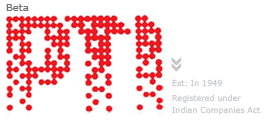
Tata, Tel Aviv University join hands to fund tech innovations
New Delhi, Mon Apr 29 2013
Tata Industries today said it has joined hands with Ramot at Tel Aviv University Ltd, the university's tech transfer company, to fund and generate leading edge commercialisation ready technologies.
Tata Industries and Ramot at Tel Aviv University Ltd (Ramot), have entered into a strategic Memorandum of Understanding (MoU) under which Tata Industries will become the lead investor in Ramot's Technology Innovation Momentum Fund, the company said in a statement.
"Under the MoU, Tata Industries through its wholly-owned overseas subsidiary will be the lead investor in Ramot's USD 20 million Technology Innovation Momentum Fund, which will invest in promising breakthrough technologies," it said.
The focus of technologies will be in a wide range of fields, including engineering and exact sciences, environment and clean technology, pharmaceuticals and healthcare.
Commenting on the development, Tata Industries Executive Director KRS Jamwal said: "Tata has taken the decision to partner with Ramot and TAU (Tel Aviv University) with a desire to enhance capabilities of Tata companies and leverage technology as a differentiator for our businesses."
An extensive due diligence process was conducted by CTOs from major Tata companies prior to this MoU and the company was encouraged by the technological leadership, the passion and the commitment demonstrated by TAU, he added.
"During this process, the Tata team was exposed to more than 70 promising innovations and had the opportunity to interact with leading scientists at TAU," Jamwal said.
Stating that the partnership "creates a major opportunity to impact communities across the world", Ramot CEO Shlomo Nimrodi said: "Being a lead investor, Tata will be able to see a pipeline of technologies. They will have an option to commercialise certain promising opportunities from TAU."
Technologies with significant commercial potential will be selected by committees comprising global domain experts and Tata representatives, who will drive the process to translate such innovations into licensing opportunities for industry, Tata Industries said.